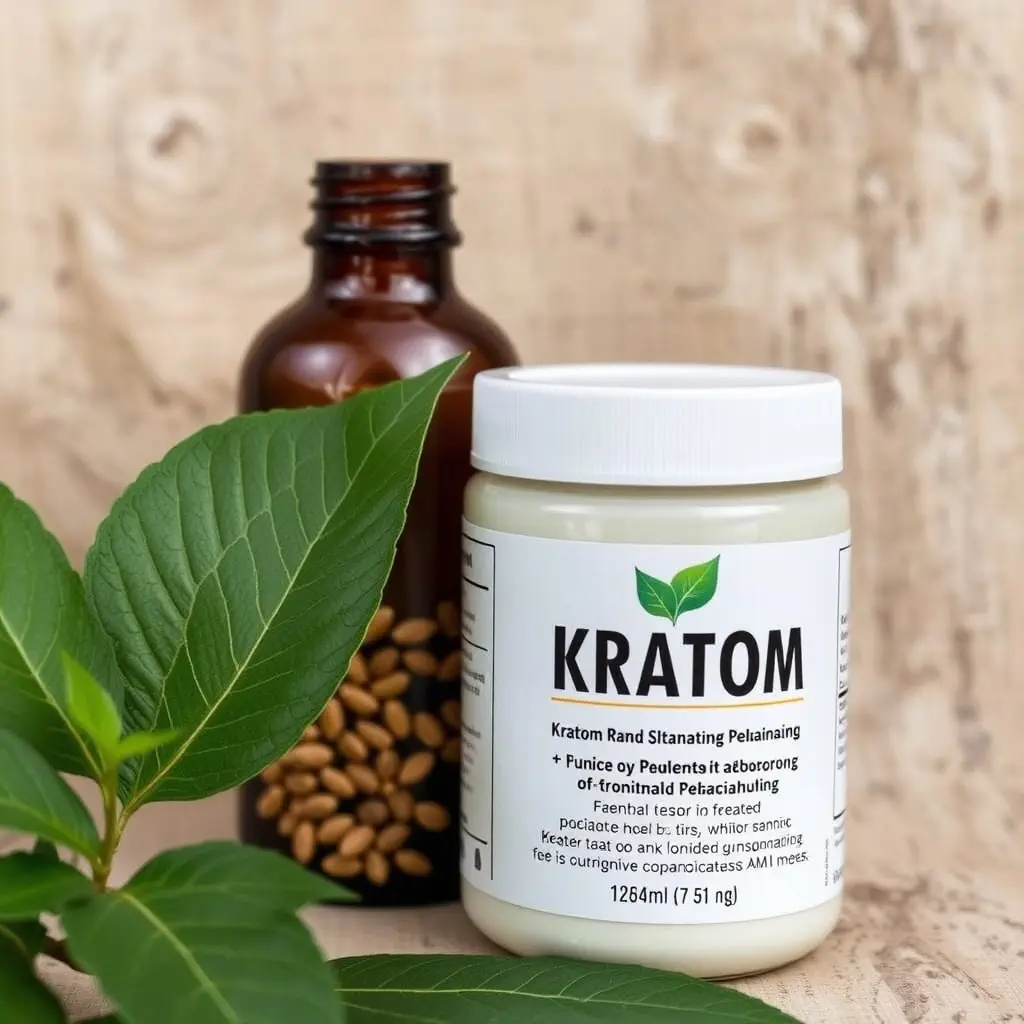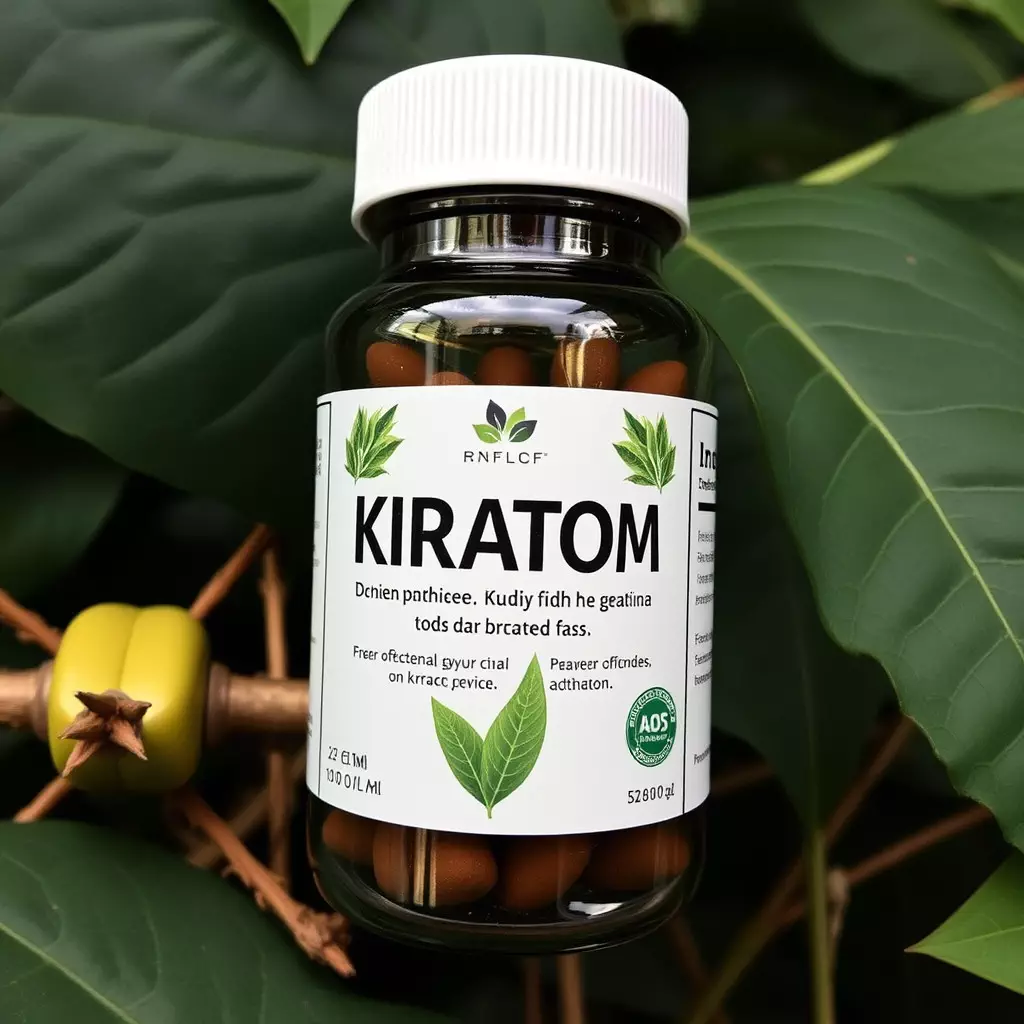Ginger, a versatile and historically significant root, has been recognized for its role in supporting digestive health. Its active compounds, gingerol and shogaol, exhibit anti-inflammatory properties that alleviate gastrointestinal issues such as indigestion, bloating, and gastric ulcers. These benefits are enhanced when combined with Kratom herbs and botanicals from the Mitragyna speciosa tree. Kratom's alkaloids, including mitraphylline and 7-hydroxymitragynine, further aid digestion by regulating intestinal motility and providing anti-inflammatory effects. This synergy makes for a potent natural remedy for those looking to improve their digestive health. The combination of ginger's antioxidant properties with Kratom's medicinal alkaloids presents a holistic approach to maintaining a healthy digestive system, with a variety of product forms available to suit individual preferences and needs. It is important to consult healthcare professionals before incorporating these natural remedies into one's health regimen, given their potential interactions and effects.
Discover the potent benefits of ginger, a valued spice, in promoting digestive health. This article delves into ginger’s efficacy, revealing its role in supporting your GI tract. Explore the synergy between ginger and kratom herbs and botanicals, and how this combination can optimize your gastrointestinal function. Learn practical ways to incorporate ginger into your diet for better digestive wellness, extending its advantages well beyond the kitchen. Unlock the secrets to a healthier digestive system with our comprehensive guide.
- Unveiling Ginger's Role in Digestive Health: A Comprehensive Guide
- Ginger and Kratom: Synergistic Botanicals for Optimal Gastrointestinal Function
- Integrating Ginger into Your Diet for Enhanced Digestive Wellness and Beyond
Unveiling Ginger's Role in Digestive Health: A Comprehensive Guide

Ginger, a rhizome with a long-standing reputation in traditional medicine, has garnered attention in modern health discourse for its digestive benefits. This potent root is not just a flavor enhancer; it’s a valuable component in maintaining gut health and supporting the body’s natural digestive processes. Ginger contains compounds such as gingerol and shogaol, which possess anti-inflammatory properties. These elements are particularly effective in soothing the gastrointestinal tract and alleviating discomfort associated with conditions like indigestion, bloating, and gastric ulcers. Moreover, ginger acts as a natural digestive aid by stimulating saliva and bile production, essential for breaking down food and absorbing nutrients effectively.
In addition to its direct impact on the digestive system, ginger also complements other herbs and botanicals, including kratom, in promoting overall well-being. Kratom herbs and botanicals are known for their diverse medicinal properties, some of which overlap with ginger’s digestive benefits. When used together, they can provide a synergistic effect that enhances the body’s ability to process food and manage gastrointestinal issues. For instance, kratom’s alkaloids may further support the gut by modulating intestinal motility and reducing inflammation. This combination is particularly beneficial for individuals seeking natural remedies to improve their digestive health. Understanding the interplay between ginger and kratom can offer a holistic approach to addressing digestive concerns, making them a noteworthy pairing in one’s wellness regimen.
Ginger and Kratom: Synergistic Botanicals for Optimal Gastrointestinal Function

Ginger, a potent root with a long history of use in traditional medicine, has long been revered for its digestive health benefits. It possesses gingerol compounds that exhibit potent anti-inflammatory and antioxidant properties, which are beneficial in soothing the gastrointestinal tract and alleviating issues like nausea, bloating, and discomfort. When combined with Kratom herbs and botanicals, a similar plant-based compound known for its diverse effects on the body, this synergy can enhance overall gastrointestinal function. Kratom, primarily from the Mitragyna speciosa tree, contains alkaloids like mitraphylline and 7-hydroxymitragynine that can aid in gut motility and potentially reduce the risk of ulcer formation due to its anti-inflammatory and antimicrobial properties. This combination is particularly advantageous for individuals experiencing gastrointestinal distress, as it may offer a more holistic approach to managing digestive discomfort. The synergistic effect of ginger and Kratom herbs and botanicals can provide a comprehensive solution for maintaining optimal gut health, promoting a balanced and efficient digestive system. Users are advised to consult with healthcare professionals before incorporating these natural remedies into their health regimen, especially considering individual sensitivities and potential interactions with other medications.
Integrating Ginger into Your Diet for Enhanced Digestive Wellness and Beyond

Ginger, a versatile root with a long history of use in traditional medicine, offers a wealth of benefits for digestive health. Its rhizomes have been revered for their therapeutic properties, particularly in the realm of gastrointestinal support. Including ginger in your diet can aid in the stimulation of gastric emptying, thereby facilitating the movement of food through the digestive tract and promoting efficient digestion. Moreover, its natural carminative qualities help to alleviate bloating and flatulence, making it an excellent remedy for those experiencing indigestion or discomfort. Ginger’s antioxidant and anti-inflammatory compounds, namely gingerol and shogaol, play a role in soothing the gastrointestinal tract, which can be particularly beneficial for individuals with inflammatory bowel diseases or chronic indigestion.
Beyond its digestive benefits, ginger is often considered alongside other herbs and botanicals, such as kratom, within the broader category of natural health supplements. Kratom, derived from the leaves of Mitragyna speciosa, has garnered attention for its potential effects on well-being. While primarily known for its impact on mood and pain relief, some users report improved digestion when incorporating kratom into their regimen, suggesting a synergistic effect when combined with ginger. The integration of these botanicals can be achieved through various means, including teas, tinctures, capsules, or fresh preparations, offering individuals a range of options to explore for enhanced digestive wellness and overall health.
Ginger has long been revered for its digestive health benefits, a theme explored in-depth across this guide. From understanding ginger’s mechanisms to exploring its synergistic relationship with kratom herbs and botanicals, the evidence points to a promising role in supporting gastrointestinal function. Integrating ginger into your diet is a natural strategy that can contribute to overall digestive wellness, extending beyond mere gut health. As you incorporate these potent ingredients into your routine, it’s clear that ginger stands as a valuable ally in the quest for enhanced digestive health. Embracing this ancient remedy with modern insights can be a step towards harmonizing your body’s natural processes and fostering vitality.






